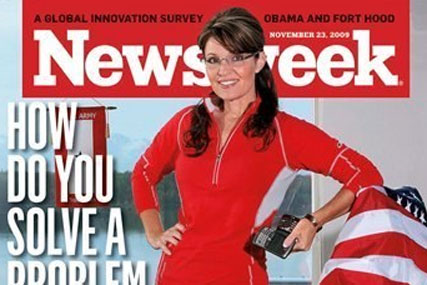
Harman only recently emerged as the front-runner to buy Newsweek, which was put up for sale in May. He beat two other bidders who were circling the magazine: Fred Drasner, a former publisher of The Daily News in New York, and Marc Lasry, a hedge fund-owner and major Democratic Party donor.
Last week, it was reported that Harman's offer appealed most to The Washington Post's chairman, Donald Graham, as it proposed to keep the vast majority of Newsweek's 325 staff in their jobs – including the magazine's top management and editors.
However, editor Jon Meacham quickly announced in an email to staff that he was stepping down after four years
Meacham wrote: "It has been a privilege beyond measure to have worked for Newsweek and for The Washington Post Company for the past 15 years. I will always be grateful for the opportunity the magazine gave me to serve alongside all of you. For half a century, the Graham family created and sustained a culture in which we were able to do good, important work, and I know Newsweek will continue to do so."
The New York Times reported that according to a person briefed on Harman’s bid, about 250 of the magazine’s staff would keep their jobs, with at least 75 going.
Graham said that as part of the process of finding a buyer, it had been important to find one who felt strongly about the quality of journalism as The Washington Post did.
He added: "We found that person in Sidney Harman. He has pledged not only to continue to produce a lively, compelling and first-rate news magazine, but also an equally dynamic Newsweek.com – and he intends to keep a majority of Newsweek's very talented staff."
Harman described Newsweek as a "national treasure".
It is unclear what he paid to take the magazine off the hands of The Washington Post, as the terms of the deal were not disclosed. What is known is that The Washington Post retains the pension assets and liabilities and certain employee obligations arising prior to the sale.
Harman is founder and chairman emeritus of Harman International, and served as the US deputy secretary of commerce from 1977-78 under President Jimmy Carter.
He also founded the programme on technology, public policy and human development at Harvard University's John F Kennedy School of Government, and holds a presidential chair at the University of Southern California, among others.


.jpg)


.jpg)